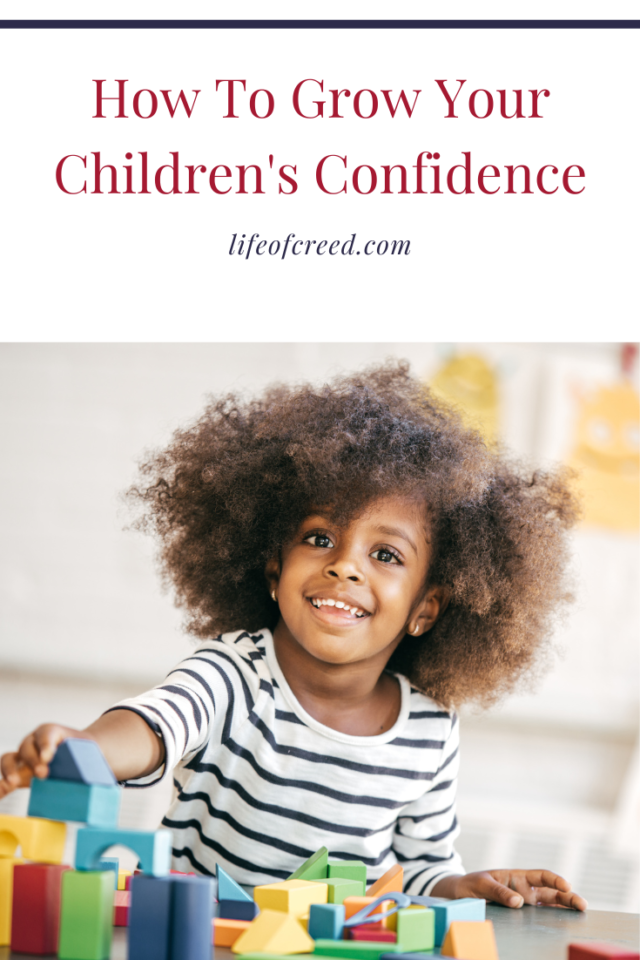One of the most crucial aspects of healthy child development is healthy self-esteem. A child’s social, behavioral, and emotional health influences how they deal with failures, peer pressure, and other problems throughout their lives.

Positive self-esteem is also a barrier to healthy mental health. Confidence building leads to positive social conduct and acts as a buffer when your child is exposed to stress or unpleasant events.
Here are some tiny but major ways you can positively influence your child’s self-esteem every day.
What Does Healthy Self-Esteem Look Like?
Self-esteem is essentially how children perceive themselves, including their self-esteem and ability to do tasks. It is molded by how much they feel loved, as well as the amount of support and encouragement they receive from important persons in their lives, such as their parents and teachers.
Being self-assured does not imply that you believe the world revolves around you or that your demands are more important than those of others. Similarly, good self-esteem is not the same as arrogance, narcissism, or entitlement. Balance your child’s self-esteem with other key qualities such as empathy, kindness, good manners, charitable giving, and a sense of thankfulness.
Every Day, Show Unconditional Love
Knowing how much you love them provides your children with a sense of security and belonging, which is critical to their self-esteem. Your unconditional love establishes the foundation for all of the healthy and strong connections they will have later in life. 2
So, every day, hug your kids goodbye, cuddle together and read a book, and demonstrate your affection. This foundation of love will support your children as they develop their own social circles, establish friends and form ties with colleagues.
Have Fun Playing Together
Playing with your child shows them that you like spending time with them and that you cherish their company. Simply having fun with your child has various advantages for both of you.
Not only can children gain confidence in their capacity to be an intriguing and fascinating person capable of forming strong social ties, but studies have shown that engaging in healthy play boosts a child’s chances of happiness while decreasing their risk of sadness and anxiety.
Building confidence will also help your child make the transition back to school and social activities as vaccinations become more widespread and pandemic restrictions relax. Furthermore, having fun and playing is a terrific stress relief for both of you.
Assign Your Child Duties And Chores
Having your child responsible for age-appropriate duties offers them a sense of purpose and success. Even if they don’t perform something precisely, express your appreciation for their attempts. Praise them for everything they do well and reassure them that they will get better and better at several things, including their duties, over time.
Chores and obligations give children a sense of control over their lives. In an uncertain world, taking responsibility for small household tasks can go a long way toward boosting confidence and resilience.
Make Setbacks Learning Experiences
Make it clear that being human entails making mistakes and not being perfect. Teach your youngster to see setbacks as chances for growth and improvement.
When your child makes a mistake, be patient with them. And, if kids tend to act out at school or have behavioral issues, do everything you can to transform such situations into chances for growth. This will boost your child’s confidence and demonstrate that making errors is not the end of the world, as long as they address them in a healthy manner. For example, if you have been looking at their Confidence Interval Calculator from school and have noticed that they are falling behind in some area, make sure they address it and help them to grow their confidence again.
Keep An Eye On Technology
Most of us, including kids and parents, are constantly connected to our electronics in today’s society. People can text, post to social media, do business, complete schooling, and check email on a regular basis using mobile phones, tablets, and laptops. Of course, this was extremely important during the pandemic.
All of these connections are both beneficial and detrimental. Technology’s a good thing since it allows people to be more productive and keep connected to others from the comfort and security of their own homes. However, if online activity interferes with family bonds and communication, it can be costly. Similarly, excessive screen time might have an impact on physical activity.
Decide as a family what type of online activity is required and what is merely for enjoyment. Then make a strategy to balance your daily time on screen with activities such as going on walks, riding bicycles, reading, and playing together.
Allow Them To Create And Display Their Work
Allow your youngster to showcase their work throughout the house. Invite your child to tell you about their work when they make artwork, write a narrative, or put together a school project. Inquire about what they want people to think or feel about their creations, as well as what they like best about them.
Giving youngsters the opportunity to show off their creations or talk about them teaches them that their efforts are valued. It also indicates that their ideas and opinions are valued.
Even if your child does most of their work at home rather than at school, encourage them to exhibit it around the house. This boosts their confidence in their abilities and inspires them to keep working hard on their creative projects.
Final Words
Working to improve your child’s self-esteem is one of the most important things you can do as a parent. And, while it may require some extra effort at times, you will be preparing your children for healthy self-esteem and success now and in the future.
But, just as you don’t demand perfection from your children, don’t expect perfection from yourself. It’s acceptable if you don’t get it right every time. Even if you make a mistake here and there, as long as you continually try to express love and happiness, you are establishing confidence in them.
About the Author
Contributing Author
This article is written by a contributing author.
If you found this post useful, please Pin It!

Hi, before you go…
Don’t forget to join the email list!
Don’t forget to join in on the conversation on social media.![]()
![]()
![]()
![]()
![]()


